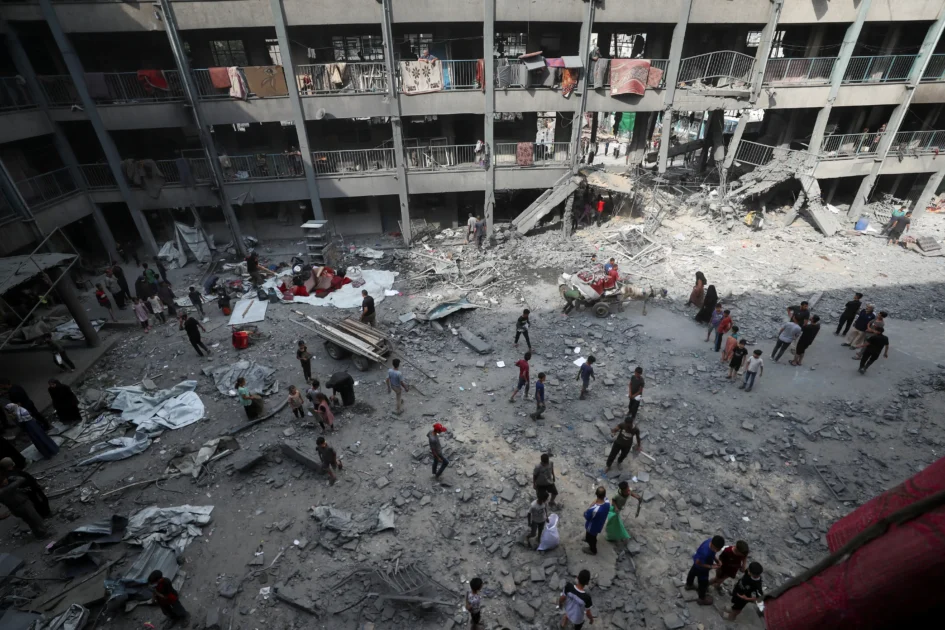- Reuters
- 1 Hour ago

Protests erupt in Libya over contact with Israel
-

- Web Desk
- Aug 28, 2023

TRIPOLI: Libya’s Prime Minister Abdul Hamid Dbeibah has suspended his foreign minister after she met informally with her Israeli counterpart.
Libya does not recognise Israel, as Tripoli backs the Palestinian cause, and the informal meeting of the Foreign Minister with her Israeli counterpart has sparked protests.
Israel’s Eli Cohen described the meeting with Najla al-Mangoush as a historic first step in establishing relations.
Israel is trying to build closer ties with more Arab and Muslim-majority countries, such as oil-rich Libya.
However Libya’s presidential council, which represents its three provinces, said it was illegal to normalise relations with Israel.
The Speaker’s Office in parliament has accused Ms Mangoush of grand treason, and Prime Minister Abdul Hamid Dbeibah has referred her for investigation.
Mr Cohen said he met Ms Mangoush by chance last week on the sidelines of a summit in Rome, and they discussed “the great potential for the relations between the two countries”.
He said they talked about Israeli aid in humanitarian issues, agriculture, water management and the importance of preserving Jewish heritage in Libya, including renovating synagogues and cemeteries.
Libya’s foreign ministry said Ms Mangoush had rejected a meeting with representatives from Israel, and what had taken place was “an unprepared, casual encounter during a meeting at Italy’s foreign affairs ministry”.
A statement also said the interaction did not include “any discussions, agreements or consultations” and the ministry “renews its complete and absolute rejection of normalisation” with Israel.
Protests broke out in the capital Tripoli and some other cities following news of the meeting. Roads were blocked, tyres burnt and demonstrators waved the Palestinian flag, though the protests appear to have been relatively small.
Miley Cyrus launches TikTok series on untold stories
Libya has been in turmoil for years, with the country split between the interim, internationally recognised government in Tripoli and a rival one in the east.
Should any deal between Israel and Libya be brokered, it would be complicated by that political division, which has existed since the overthrow of long-time dictator Muammar Gaddafi 12 years ago.
Gen Khalifa Haftar of the Libyan National Army (LNA) runs the rival government in the eastern coastal city of Tobruk.
Israel’s charm offensive began under the 2020 Abraham Accords, which seek to get countries which are hostile to Israel to recognise its sovereignty and establish diplomatic relations.





